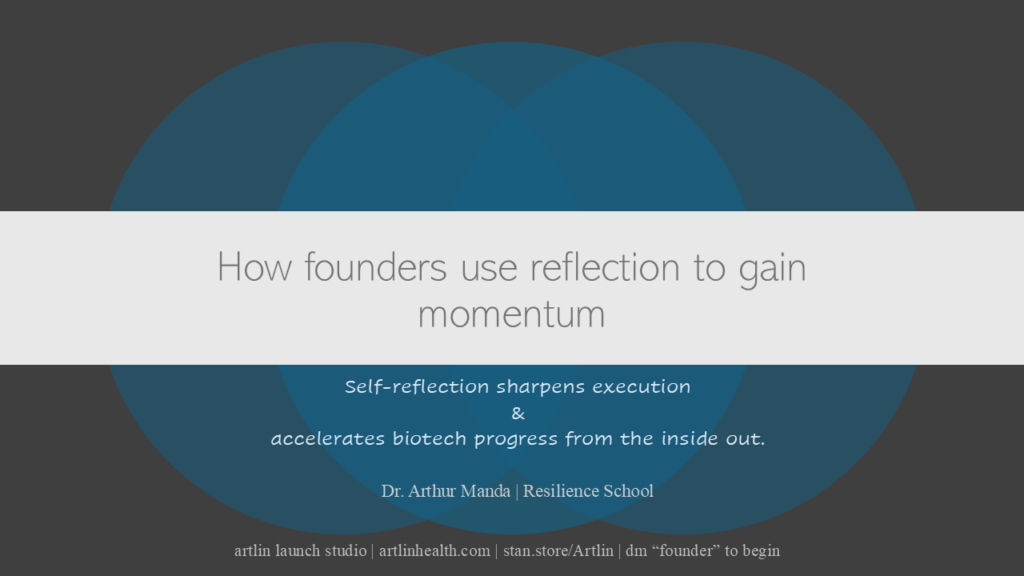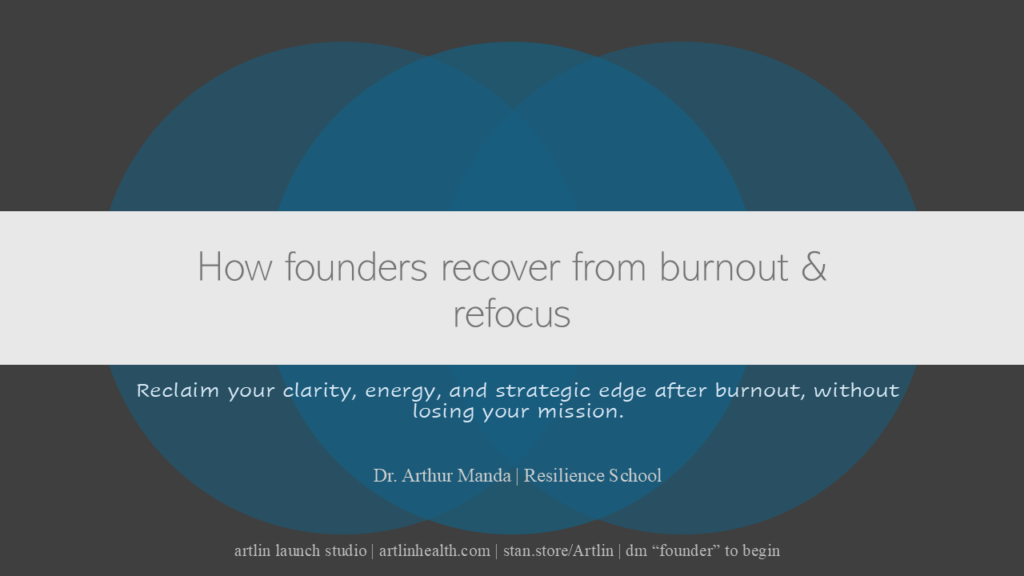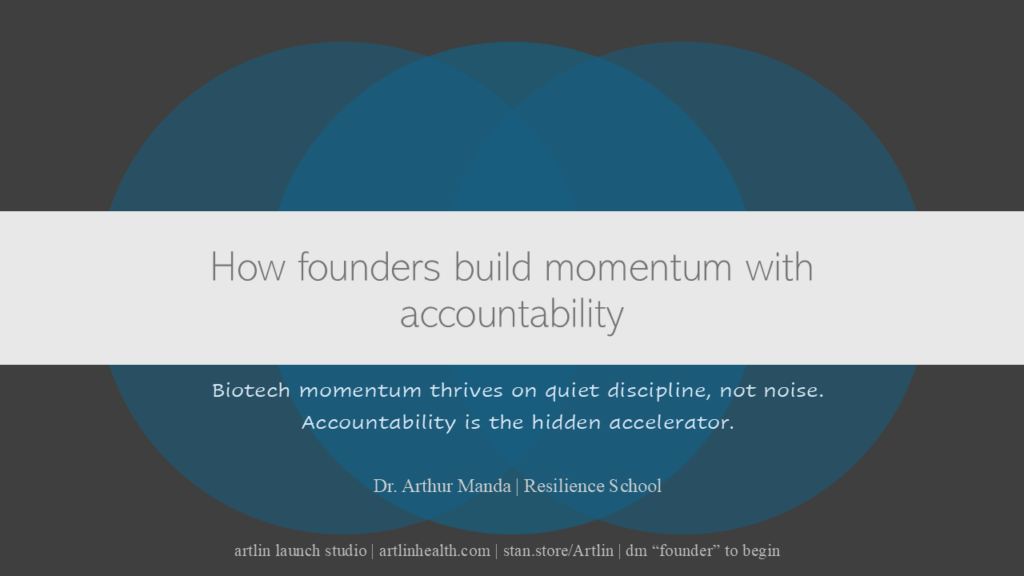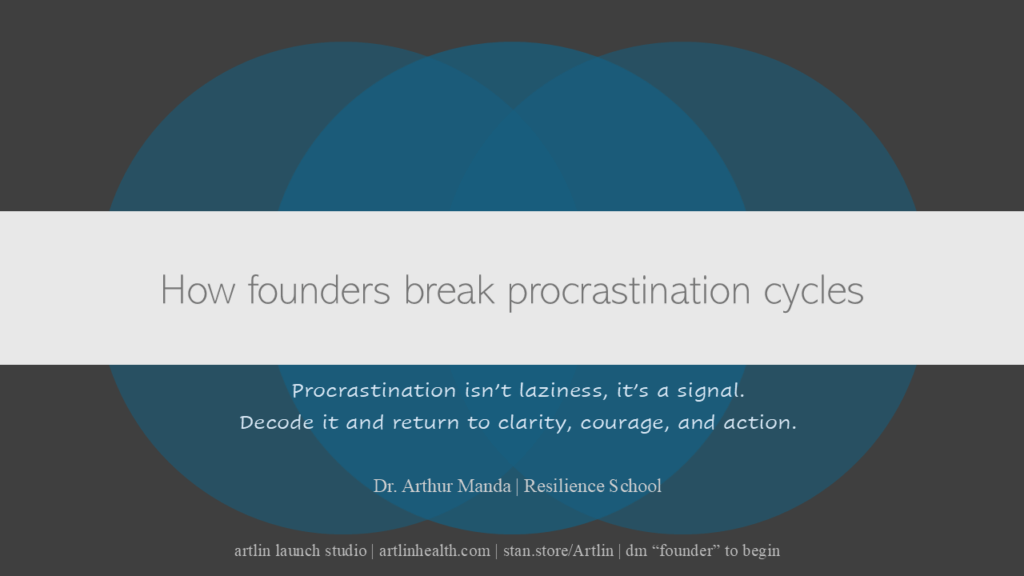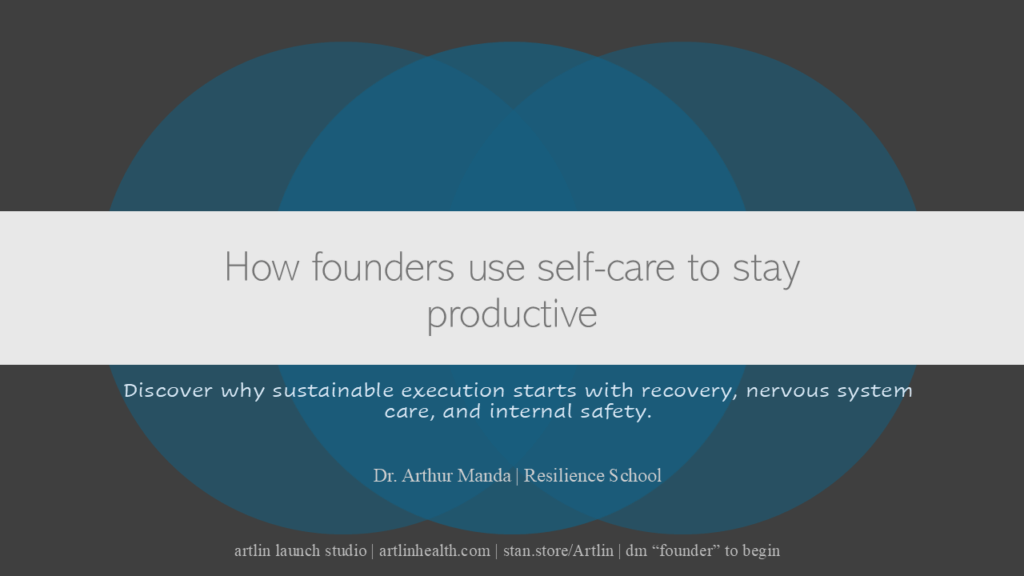In biotech, external progress means little without internal integration.
This module invites you into founder-level self-reflection, offering practices that anchor your vision in clarity, overcome internal friction, and become the true accelerator of your platform.
Why self‑reflection matters more than hype
Goals alone don’t move the needle — your internal architecture does.
When reflection meets vision, you stop chasing—you begin aligning.
Without self-awareness, even the most ambitious strategy becomes friction.
In biotech, where timelines and complexity reign, inner mastery is the only reliable compass.
Simply put: self-reflection is the engine behind sustainable biotech action.
5 layers where inner mastery drives momentum
Peel back the layers & clarify your ‘why’
What if your current goals reflect someone else’s desire—not your own? Reflection helps you realign with what genuinely matters.
Dissolve limiting beliefs & unproductive patterns
Inner work exposes the narratives that sabotage you: “I’m not enough,” “I have to be perfect,” or “I can’t lead.” Then it dismantles them.
Elevate emotional regulation & decision-making
You can’t lead in chaos. When you reflect, you cultivate an internal state that allows you to respond, not react, to high-stakes feedback or failure.
Build adaptive resilience
Biotech founder life is trial after delay. Self-reflection trains you to metabolize setbacks, adapt strategy, and rebuild with integrity.
Cultivate self-compassion & longevity
Ambition without care leads to collapse. Inner mastery grounds ambition in compassion, sustaining energy for the long haul.
Practical reflection tools
Daily status pause
Three-minute check-in: What’s alive, blocked, or unclear? Write it down.
Post-event debrief
After a setback or breakthrough, ask: What did I learn about myself, work, or system?
Belief audit
List three recurring internal messages. Challenge them: Are they true? Useful? Owned?
Somatic integration
After reflection, take 2 minutes to feel your body’s response: breath, movement, orientation. Anchor insight into embodiment.
Threshold intention
Before a next move, set a one-sentence intention from a regulated state: “I build with curiosity today.”
Integration: reflection = flow
Self-reflection is not passive. It’s strategic architecture.
It surfaces misalignment swiftly.
It resolves internal conflict before it shows up in team dynamics or investor pitches.
It transforms energy leaks into clarity flows.
You move from doing goal-work, to being goal-led.
Why this module matters now
Many founders chase acceleration without looking at what slows them down:
Toxic perfectionism
Unseen identity splits
Emotional body fatigue
Misaligned motivations
Self-reflection is the missing protocol beneath your next scientific or platform breakthrough.
Next step: embody the inner work
Artlin Launch Studio (ALS) is where inner mastery and platform-building converge.
Inside ALS:
You don’t just set goals — you build the founder architecture behind them.
You don’t just act — you integrate learning across nervous system, identity, relationships, and strategy.
If you’re ready to lead from clarity, insight, and body-regulated strength…
DM “Launch Studio” or visit https://stan.store/Artlin
Your vision needs refinement. Your nervous system needs recalibration. And your founder identity needs activation.
Reflection isn’t optional — it’s essential.
